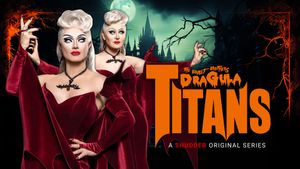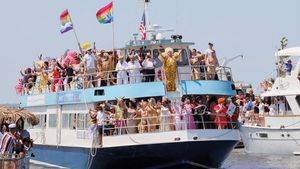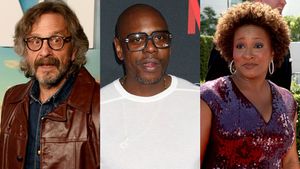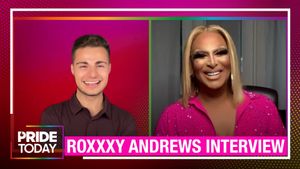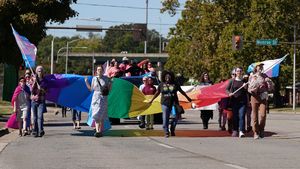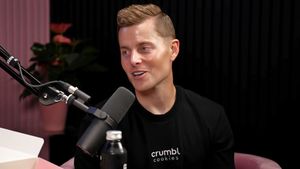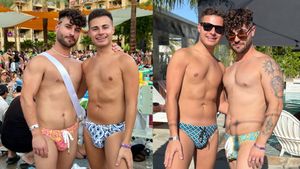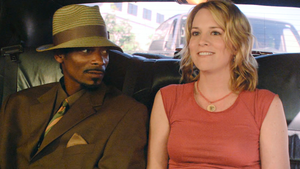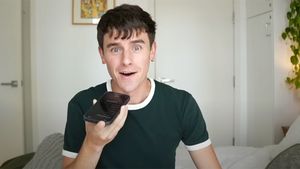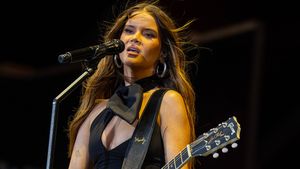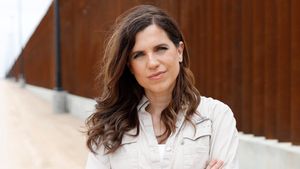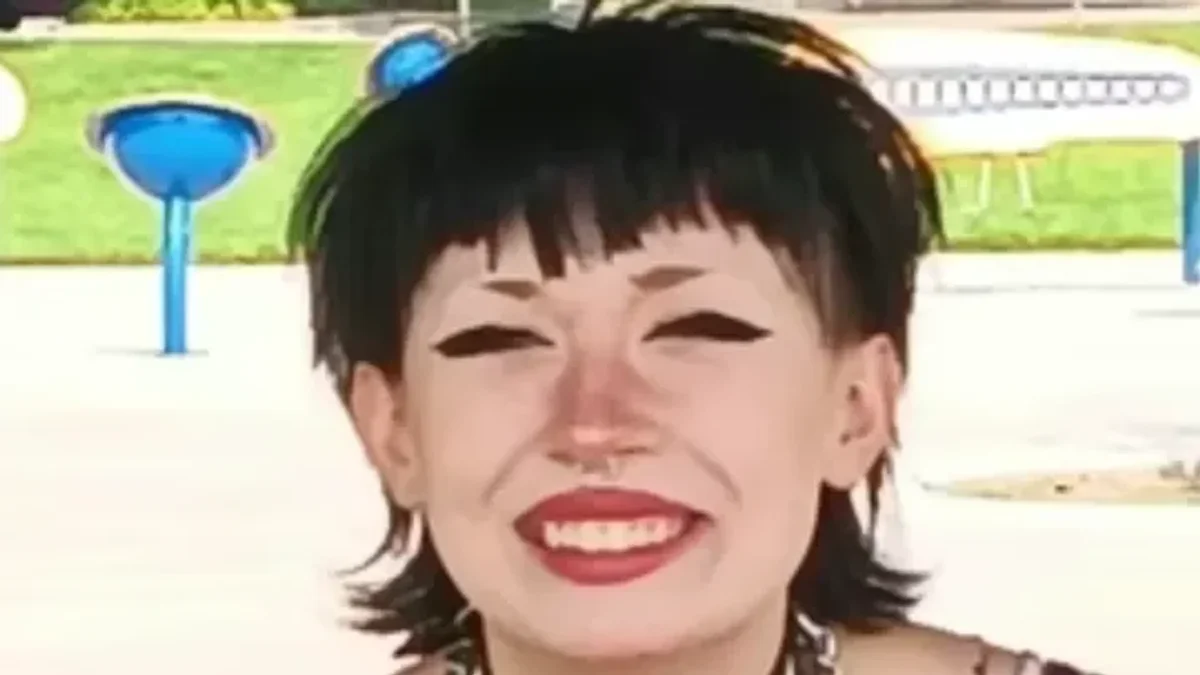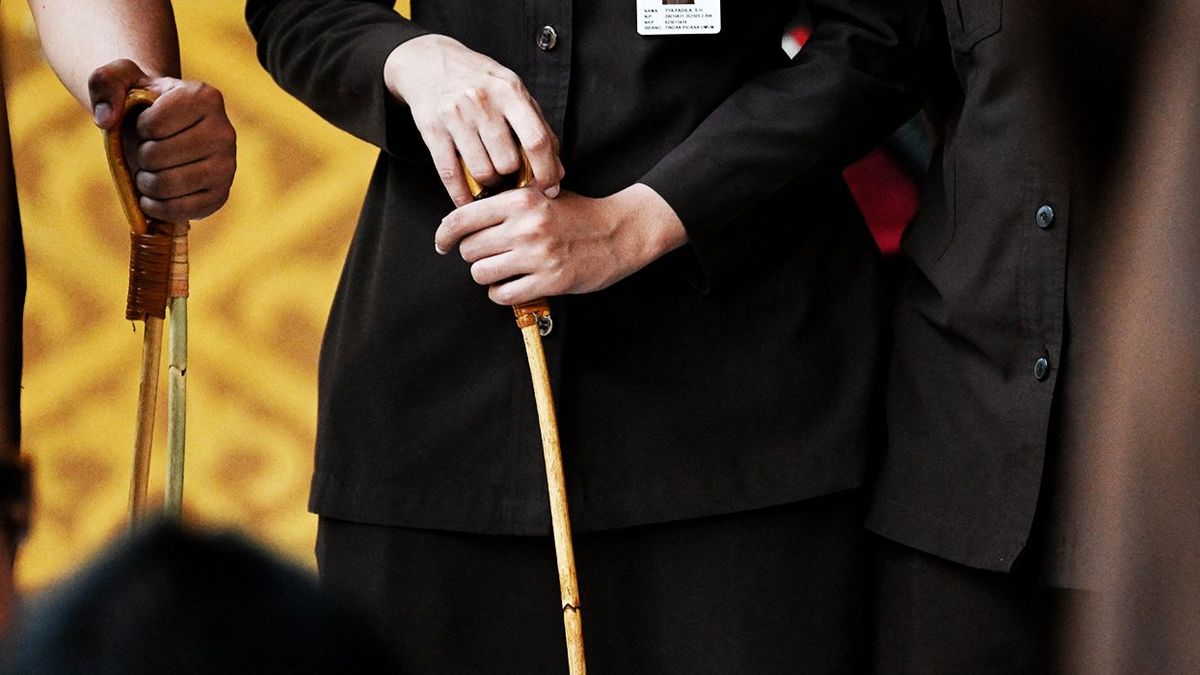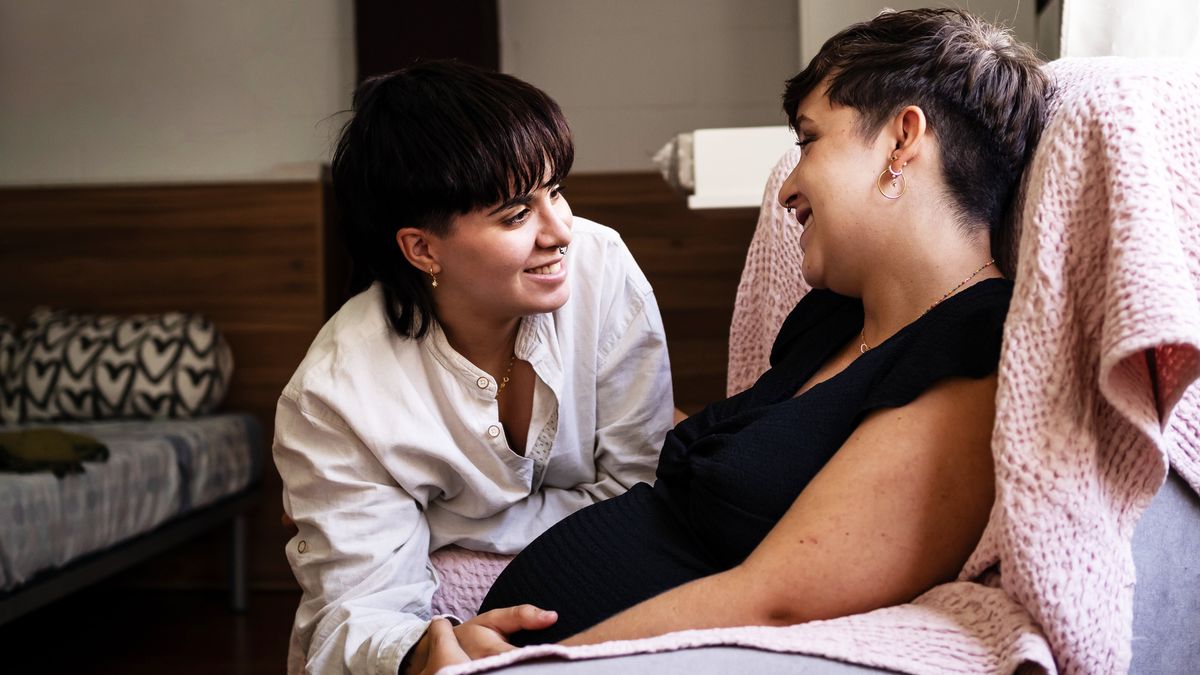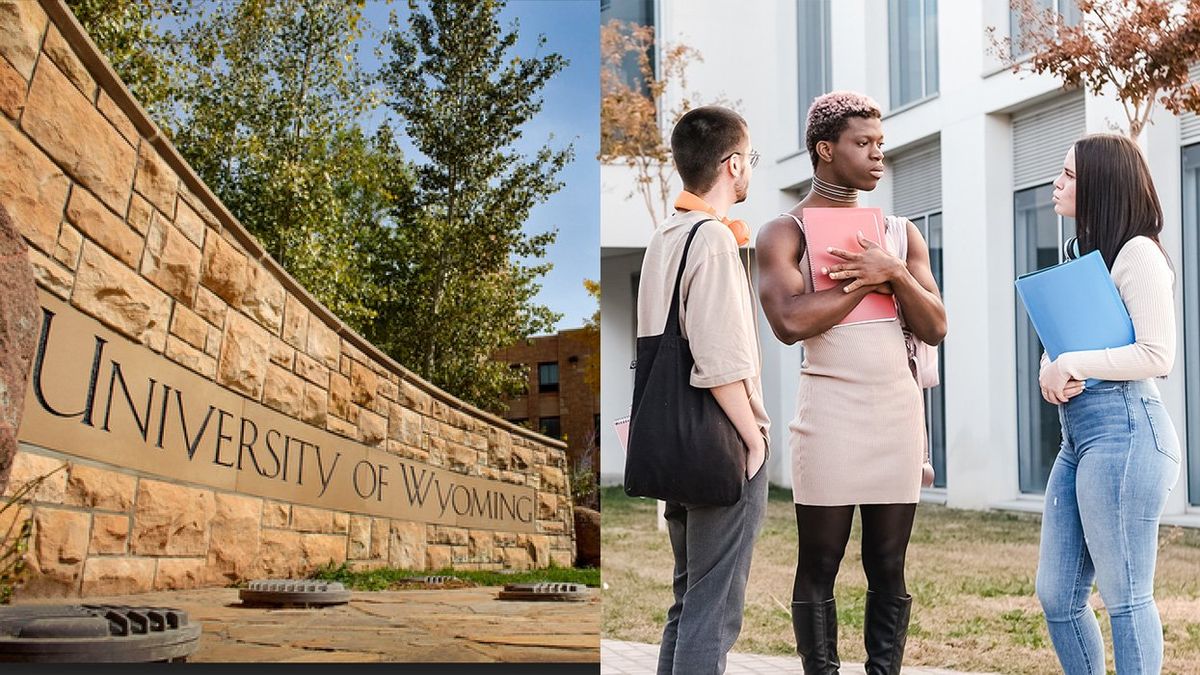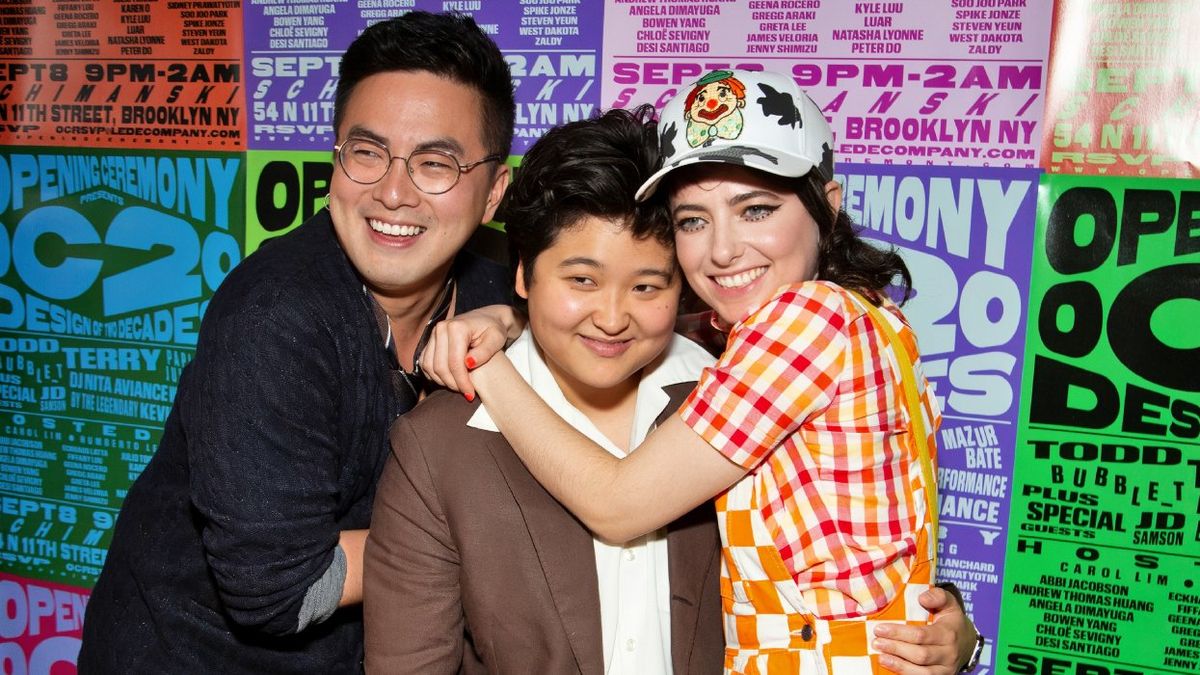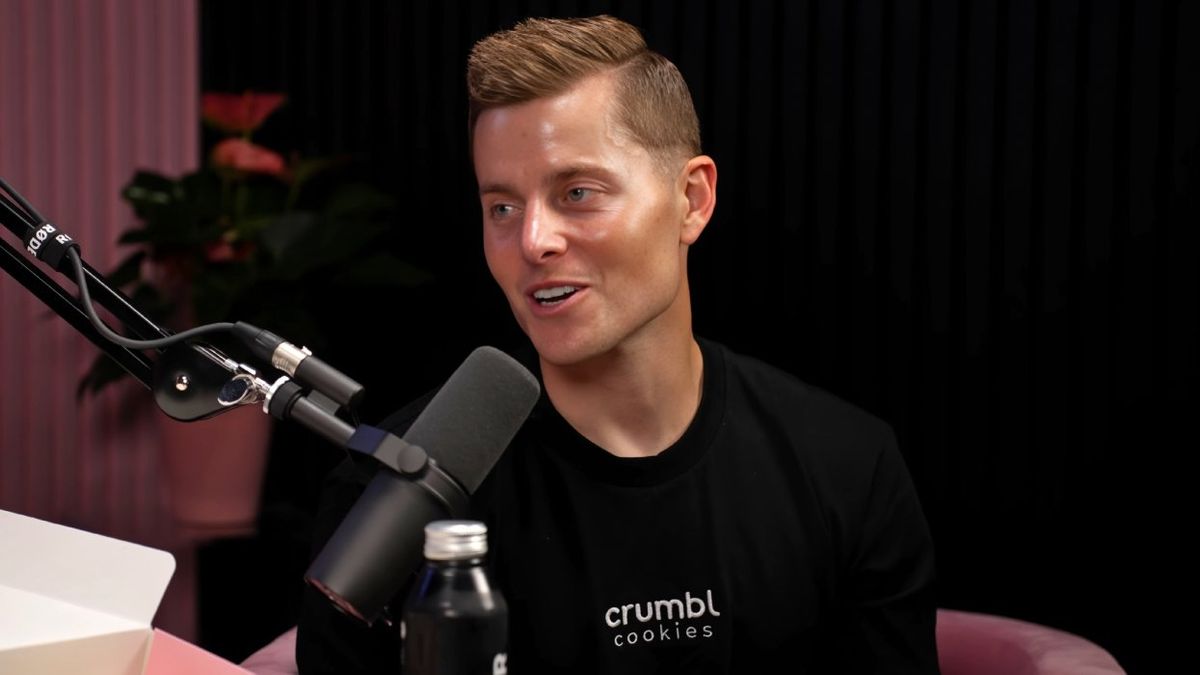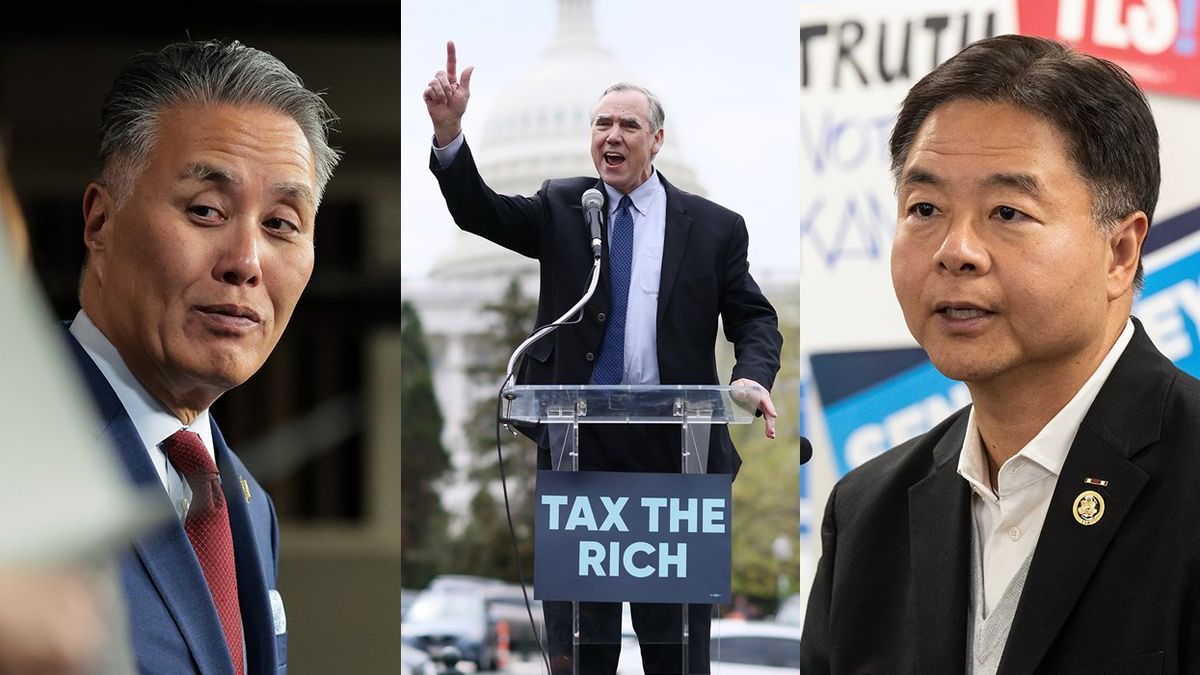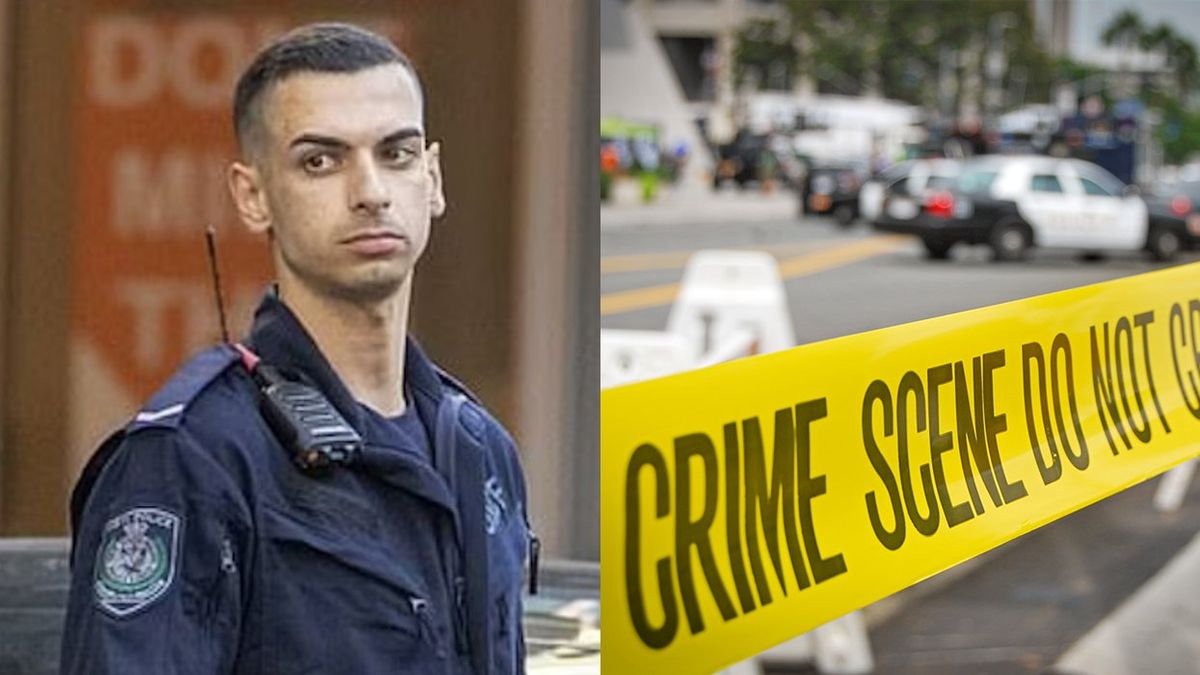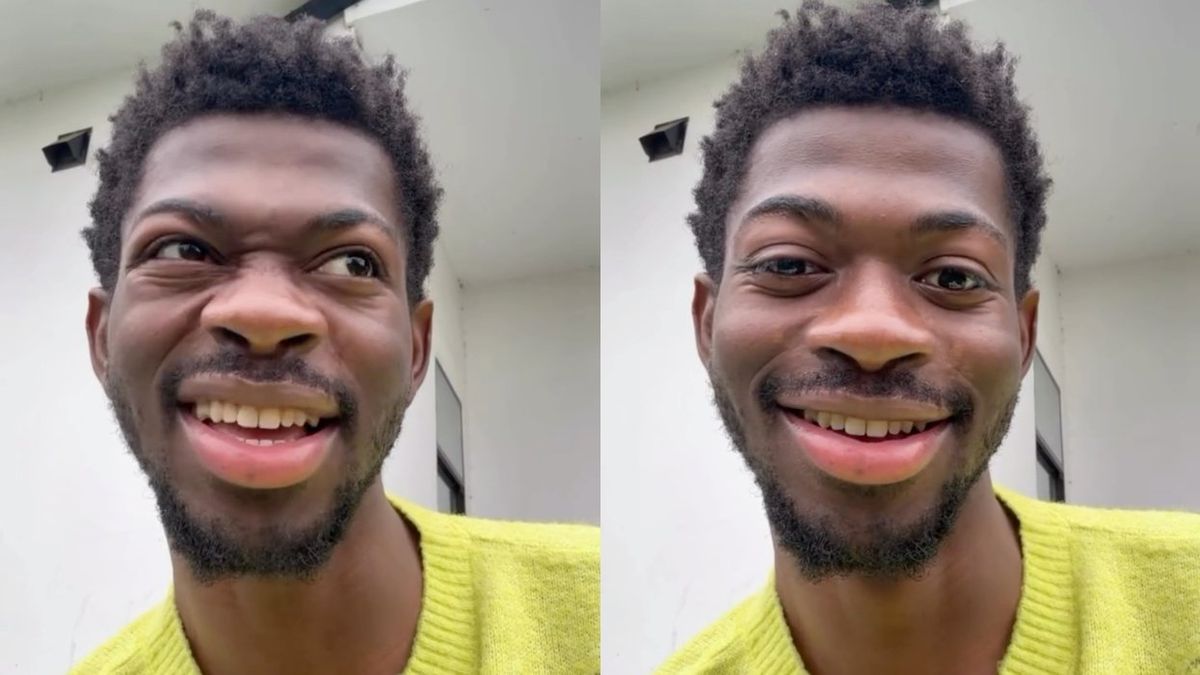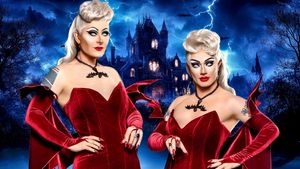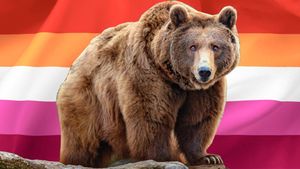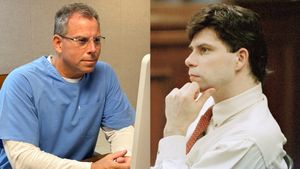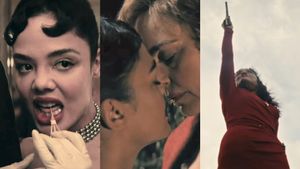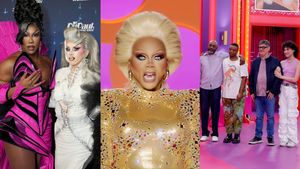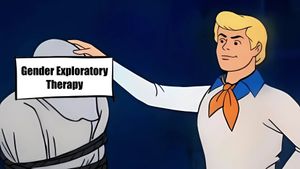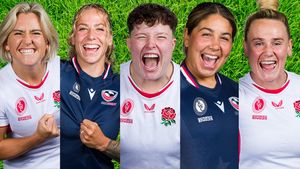Nearly 30 years ago, Jane Lynch was a bitchy Cornell University student with a tragic perm and a habit of ending her day with a six-pack of Miller Lite. The Dolton, Ill., native was studying theater, seething with envy and entitlement, and like the beloved antihero she plays on Glee, Sue Sylvester, "hell-bent on revenge and out to crush the dreams of the innocent." But that anger was a holdover from childhood. And her arrogance, as she recounts in her new memoir, Happy Accidents, was really hiding a deep secret: She was different.
Lynch grew up a middle child, desperate for attention from her banker dad and a fashionista mom whose biggest quandary was making sure her children would have "normal" lives (a maternal concern that Lynch understood to mean don't be different, don't make waves, and definitely don't be gay). Lynch's parents threw quintessential '60s mixers, martini-drenched cocktail soirees that meant leftover half-empty glasses Lynch could sneak drinks from, cigarette butts she could scrounge to relight as a tween. Once, when she was only 12, Lynch recalls, "My dad caught me lighting up outside...I overheard him proudly telling my mom in the kitchen, 'She's out there smoking like a pro.' "
It was a solidly middle-class, white-picket-fence world, but Lynch says something was wrong. She was frightened by an underlying difference. She felt out of place at home, in her family, even in her own body. When she sneakily played dress-up, it was in Dad's clothes, not Mom's, and she dreamed of becoming the heroic prince in the Disney films, never the princess. She longed to be the ultimate 1960s man with a cocktail in his hand and a woman on his arm. Long before he was a TV character, Don Draper was a hero in little Janey Lynch's mind.
So as soon as she had access in her adolescent years, Lynch turned to booze to smooth out the edges and mute the difference. Later she drank and drank and drank to hide the pain and confusion. Even though she wasn't a crazy drunk as a young woman ("I worked, I paid my taxes"), she was a functional alcoholic who more than once woke up to find vomit from the night before with no recollection of how it got there. It would take an Indigo Girls-inspired lesbian-songwriter grunge phase and a night of dope and despondency at 31 to make her hit Alcoholics Anonymous--and finally come out to her parents.
Lynch has come a long way. She's hosting the 63rd Primetime Emmy Awards in September and is only the third woman in the show's history to do so solo -- and she's up for an award to boot. Lynch, who already has a shelf full of honors (an Emmy, a Golden Globe, and a SAG award for Glee alone), is one of the most recognizable women in television. And that's a bit ironic, especially because many of her roles were originally written for men.
Often playing a straight shooter with a dry wit and a poker face, the actress has been in a bevy of films, including thinky kiddie flicks (Shrek, Forever After, and Rio); critically acclaimed mainstream movies and boy-centric blockbusters (Julie & Julia, Role Models, The 40-Year Old Virgin, and the upcoming Farrelly brothers reboot of The Three Stooges); and the Christopher Guest indie darlings that first brought her fame (Best in Show). But her real legacy is on TV. Beginning with 1993's Empty Nest, Lynch has appeared in more than 50 TV series, most of which were top-ranking prime-time hits in their day, including Friends, Frasier, Dawson's Creek, Criminal Minds, The L Word, and, of course, the number 1 prime-time comedy still running, CBS's Two and a Half Men.
It is her turn on Two and a Half Men that got her into the biggest role of her life: motherhood. A lesbian and recovering alcoholic who found widespread fame at 48, Lynch has never felt her own biological clock ticking; she assumed parenthood had passed her by. Then she spied psychologist Lara Embry -- famous for a custody battle she waged with her former partner over one of their daughters and eventually won -- at a gala for the National Center for Lesbian Rights in 2009. Embry's best friend was a Two and a Half Men fan and urged her to get the star's autograph.
And, like in those fairy tales Lynch watched as a kid, the couple fell in love. Within a year, Lynch was married with children. (When they wed, Lynch's equally witty mother quipped, "Well, at least you're marrying a doctor!") Their children are Haden, 9, Embry's biological daughter who lives with the couple full-time, and Chase, 11, of whom Embry shares custody with her former partner, Kimberly Ryan.
The six-foot-tall blond is finding herself in new territory here as a mom. In between filming season 2 of
Glee, Lynch was completely immersed in motherhood. "I became wifely," she says. While Embry worked, Lynch would drive the station wagon to Whole Foods and head to the dry cleaner's or the hardware store to do mundane errands, before picking Haden up from school. "I loved taking care of my girls," Lynch admits.
She may be awarded another Emmy this month, and her memoir is rising up the charts, but what she really wants to do is settle in on the sofa to watch TiVo'd
iCarly reruns with Haden until Mom gets home.
When you met Lara at the NCLR gala, she was there with another woman. You didn't know if they were together, but rumor has it you looked over and said, rather Sue Sylvester-like, "I could break that up." [
Laughs] At that point, I was willing to go in there and destroy a relationship in order to get what I wanted. But turns out I didn't have to.
And in the end you married a family -- not just Lara but her daughters too. Has motherhood changed you? It's so funny, my instincts are, Well, I'm maternal in that I'm very empathetic, but children I never got or understood. I've always been more of a dog person. So yes, motherhood has changed me. I have this little girl, Haden, who lives with us. She's 9 years old, and she's witty and sardonic and has a huge heart. She's a peacemaker and one of the wisest beings. Sometimes I feel like she's taking care of me.
So now you're 51 and married with kids, you're remodeling your home, your career's at its peak -- do you have anxiety about losing it all? No, I don't. I really don't. I have a great deal of equanimity in my life, and I don't have that feverish ambition or anxiety-filled need to go-go-go anymore. I really let things come and go. I don't suffer much, which also means I don't get crazy elated about anything. I'm not too high and I'm not too low. I'm kind of in a nice middle place.
Do you think Happy Accidents will surprise readers? I don't know that I set out to surprise -- I just told the story. I kind of carry myself with a confidence and a know-it-all-ness, so it might surprise people that there was actually a very scared child underneath the surface of that.
You've said you never did a coming-out interview because you're a character actor and nobody really cares. But you cared a great deal. I did. That's something that I hope will be helpful to people who are living in environments where gay people don't exist or in environments that are hostile toward homosexuals. It's good for people to know that you can actually overcome the adversity and find places and people like you. They're out there.
You're up for an Emmy along with cast mate Chris Colfer, who came out along with his character. What advice do you give someone like Chris, who's taken such a different path than you did? One of the things I say in the book is that everyone has their own journey and I wouldn't condescend to tell anybody how to go about theirs except to say, "Trust your life and trust where you are right now." Everybody's going to have their own story, and we have to leave it up to them to decide how and when they're going to come out. I would never give anybody advice that way. It's so personal.
In your book, you mention a lesbian love scene you had on The L Word with Cybill Shepherd. It was her first love scene with a woman. Of course, we were both clothed because no one wants to see us middle-aged broads flopping around in bed. [
Laughs] I had one love scene under my belt, and I'm a lesbian in actual life, so I'm sure she expected me to take the lead, which I did. She was absolutely wonderful and open to the challenge. We both had a good time.
Cybill has two lesbian daughters, Ariel and Clementine, who you worked with. Did Cybill talk about LGBT issues on set? Oh, yeah. She marched in the [pride] parades before it was fashionable. And she gave me an award at the Orange County gay and lesbian center about two years ago, so she's been out there. Clementine's got a great mom who's going to support her and whoever she loves.
Your work on Two and a Half Men endeared you to a different fan base than Glee or Criminal Minds. You write very admiringly of Charlie Sheen. He's one of the nicest guys and a true leader on that set. He's going through his stuff now, but there's a really solid, wonderful person in there, and I love him very much.
You're often cast as authority figures like Sue, but you say the core of these characters doesn't match your own, so you often feel like a fraud. Absolutely. It is not my core, however it lives in me. I would not be able to portray it if I didn't have that. But I use it defensively, that kind of authority or arrogance or indefensive entitlement. My core is much squishier and a little bit insecure...I don't want to ask for too much, I don't want to rub people the wrong way. I don't want anyone to get mad at me. Sometimes I do have to get a little boundaried and state what I need, and I haven't been great at that, but I'm getting there. I think that that rivals what I've put out in the world through my characters who are very boundaried and all entitled to the max. And I think that's why I get such a kick out of doing it, because that doesn't match at all who I am [or] how I walk through the world.
In the early '90s, when you were maybe 30 or 31, you went through a grunge phase. Was this before you came out to your parents? Yes. In fact, when I came home for Christmas that year with the long underwear and flannel boxer shorts, my mom and dad told me later that they kind of shared a look like, Uh-oh.
Clearly your style has evolved a great deal. You and your mom watch a lot of What Not to Wear. Yeah, we love it, can't get enough of it. I love fashion, and I love seeing it on people, I have a hard time with myself, though. I'm hard to fit. I have a skinny neck and a little head and a big ass. It's hard to dress that. [
Laughs]
And you're six feet tall. Right. I look like a tall person being consumed by her collar.
Do you think being openly gay helps your work in any way? No. If anything, I think people respect me for not hiding. But what it comes down to is we're all just people. And at the end of the day, I happen to go home to a woman. In Hollywood, all that matters is...do you do your job and do you do it well and is this somebody you want to have around? The place where it's hardest is for lead actors and actresses who are supposed to be the love interest. Yeah, I think that's still a tough arena -- we haven't cracked that yet.
Do you think that we'll be able to crack that lead actor slash romantic love interest barrier? Oh, yeah, absolutely. I think everything's just a matter of time. As much as we have our puritan roots in this country, and we kind of fight progress, we end up making the progress [happen]. What is it Winston Churchill said? Americans will always do the right thing after they've failed at everything else?
One of the more touching stories in your book is about your best friend, Chris, who you break up with essentially because he's gay. That's a tough story. Right. And the reason I tell the story is I want people to know I wasn't above it. It's condemning that which you're not expressing. It's going on all over the place: A lot of the people who are the loudest voices going against gay rights are fighting an inner gay within. Chris is very open, and he was basically,
F you if you don't like me. He dressed the way he wanted to dress, he dyed his hair, got a perm, he was wearing parachute pants -- and I had such a hard time with that. I was like,
You don't flaunt that stuff. Since we had never come out to each other, this was just so unconscious on my part, hating that which is inside of you that you haven't accepted.
What do you take away from that these many years later? That's one of the great things I've learned in my life, is that stuff -- that subconscious stuff that swims around in there and causes you to lash out at people -- needs to be brought into the daylight. If not, it kicks you in the butt. Everything's going to come out. I have a psychological understanding of myself and it's the truth for me, and I apply that to every character I play. I don't do this stuff consciously anymore, but I ask myself, What is their big secret? What are they afraid of?
You were a snotty kid. Do you pull a lot of that into Sue Sylvester? Oh, absolutely. I know where that bitchiness comes from. Sue is a warrior, but she is defending a very tender part of herself, and it's manifesting in that sister of hers with Down syndrome, who she's been taking care of and protecting from the cruelties of the world all of her life. I think that was a brilliant, brilliant story point that they gave me.
Sue feels abandoned by her mother too. Absolutely. The orphaned, thrown-away child, who's forced to fend for herself and her vulnerable sister.
On a happier Sue note, your "Vogue" video made Ryan Murphy's gay dreams come true. But it sounds like it wasn't that easy for you. I'm not a dancer. I am a woman who knows her limitations. But that doesn't mean I won't work really hard and try. They say you only have to get it right once, and luckily we were rolling the one time I got it right.
It is surprising to learn that you're deaf in one ear. Back in the old days, when there were transistor radios, my brother kept switching his ear with the earphones. I said, "You can't do that." And he said, "Yes, I can -- I can hear out of both ears." And then I realized that uh-oh, I only hear out of one. But instead of making me feel different, it made me feel special.
Has it ever affected your work? No, no. The only thing it's affected is if I'm in a crowded restaurant, I have to make sure of where I sit. I have to make sure the good ear is toward the person I'm talking to.
During your early theater days, you worked with a veritable who's who of comedy: Will Ferrell, Steve Carell, Stephen Colbert, Andy Richter, Amy Sedaris. Did that breeding ground shape you as an actress? Oh, yeah. Everybody was very can-do, and it was, you show up with your own thing, and you got an idea, you wanted to be in it, and it's very much a group effort. It was a group of people who made things happen for themselves. And you had to...create your own party and not wait to be invited.
With so many famous names coming out of that whole scene, is there anybody you worked with then that you were surprised didn't become a big star? Yeah. I feel so lucky. I know there are a lot of talented people out there who just didn't have the happy accidents that I had. And I can't say it's because I'm a better person, or I did something right and they did something wrong.
The way things have come together for you have looked like happy accidents. For such an anxious kid, that's a bit of a surprise. Absolutely, but one thing it did for me, that anxiety, is that it caused me to grab at everything that was offered to me without really thinking about it. There are some things I probably should have left on the wayside, but I learned from everything. My back was up against a wall trying to redeem kind of crappy projects that I'd get involved in and trying to make them mean something for me. I always worked hard. I never was half-assed, and I think that served me.
Going back to your struggle with alcohol--you started out drinking Boone's Farm in eighth grade. Do you think Boone's Farm is a gateway drug for teenage drinking? [
Laughs] Boone's Farm, that's a gateway drug. I think it's cheap. And it gets you drunk, and it's sweet, but boy, it makes you sick. I remember a friend walking home through the park in the snow leaving a trail of bright red vomit.







